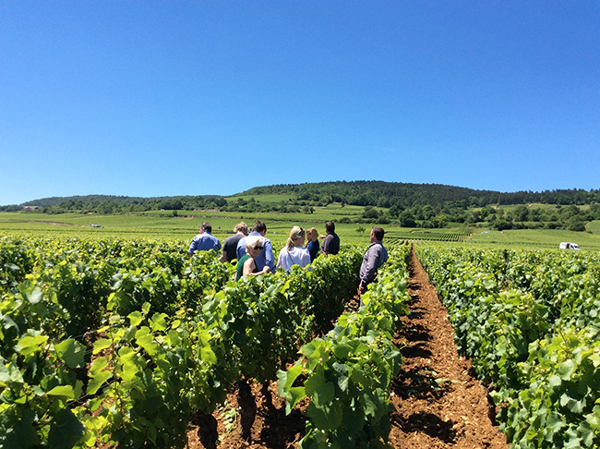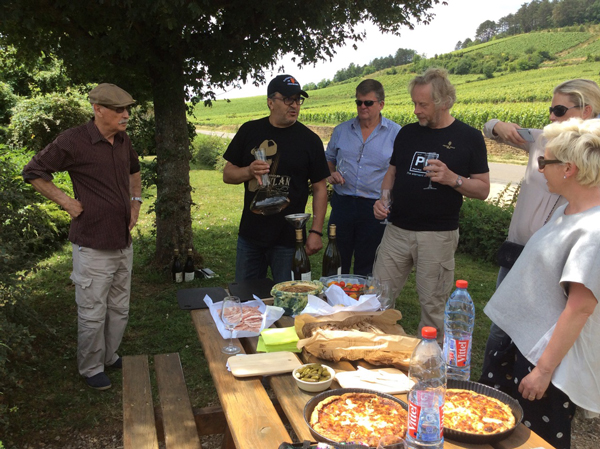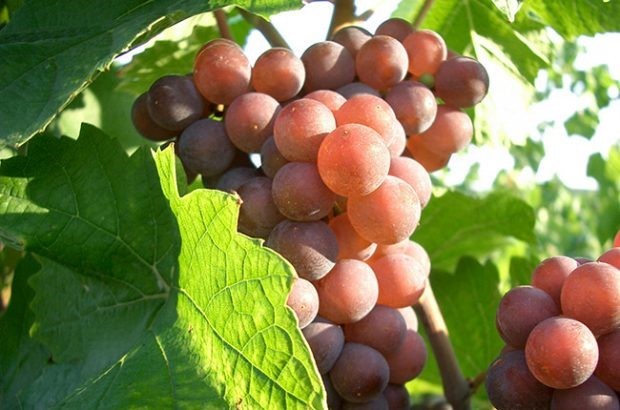Jefford on Monday
This, I guess, is how the wine world moves forward. It starts, typically enough, with an idea – in this case, from Jérôme Faure, group head sommelier for the Constance Hotels group of Indian Ocean hotels and resorts.
The idea was to promenade some key New Zealand Pinot Noir producers (Nigel Greening from Felton Road; Ivan and Chris Donaldson from Pegasus Bay; Larry McKenna and Carol Bunn from Escarpment; and Helen Masters from Ata Rangi) on a series of wine dinners through Loiseau group restaurants in France, showing off their Pinots and Chardonnays to French diners as they did so, and fetching up in Burgundy. They kindly asked me to join them, but I had a pre-existing commitment; I did, though, recently catch up with Nigel Greening for a debrief.
Greening was surprised at the reaction his wines got. ‘There’s been a huge change in enthusiasm among the French about trying non-French wines, especially in Paris. A lot of this is down to sommeliers: they’ve worked in London, New York, Hong Kong, Dubai, and they’ve had the sacred nature of French wine knocked out of them years ago. People were curious, appreciative, knowledgeable. I had to rethink my prejudices as fast as I absorbed their responses. One young man who was dining with his parents handed me an envelope containing a request for employment when he finished his studies -- he was travelling to New Zealand to read for a masters in winemaking and viticulture at Lincoln University in Christchurch. How cool is that?’

French wine-lovers appreciated ‘the relative quality of our village-level wines compared to the higher-tier wines. In Burgundy the gap is quite large; it’s much subtler with us. But they were also shocked at the price of the top wines.’ The Kiwis were in turn impressed by how many Burgundian wine producers turned out for the dinners they did there – and how familiar they already were with the wines. ‘Mostly they get the wines poured by distributors when they are travelling, but we do sell in France and I was surprised to learn that there are three restaurants in Dijon with our wines on the list. They send their children down to us to be trained; we send ours up to them. And just as we try to visit Burgundy, they come down to have a look around. There are currently two prominent Burgundy wine makers making test cuvées in Central Otago with an eye to setting up shop.’
What do Burgundians make of conditions in Central Otago? ‘They look at our fruit and often comment on what an easy ride we have. François Millet of de Vogüé is down a lot. The first time he was with us, he looked at the fruit coming in and said “This is what ours looks like after 12 hours’ sorting.” But,’ continues Greening, ‘it’s a challenge as well as a blessing. To get their levels of tannic ripeness, we’d have to leave fruit out until it was about 17%. Out of all the strings which form the race to ripeness, sugar is the slowcoach in Burgundy. They’ll get everything else, and sugar is trudging along in last place. For us, the sugars are streaking out in front. Our phenological ripeness is the slowcoach. We waiting for decent lignifications of seeds and so on, as that’s the first day we can pick. By then, we have 13.8%, 13.9% -- if we’re lucky; if not, it’s more. If we go for an earlier picking window, we’ll get green tannin.’
Greening and his fellow travelers were ‘enormously impressed by the improvement in winemaking within Burgundy. They always had the experience passed down from generation to generation, but we tended to lead on technical understanding. These days they have at least the same levels of technical understanding that anybody has in the New World, plus all that experience, and as a result they’re making wines of extraordinary precision, with fewer and fewer flaky wines. At their prices, of course, they can’t afford for the wines not to be absolutely right. There can’t have been a time when Burgundy was making better wine than now: it’s an absolute peak of quality. That excites me.’

He was, though, bemused at the notion of biodynamics in Burgundy, where growers may just own a row or two of vines in a particular vineyard. ‘We run a closed-gate farm, with only a third of the land in vines; the rest is dedicated to creating the ecosystem. We have our own cows; we make our own composts and preps. That’s just a dream in Burgundy. Biodynamics in Burgundy is just organics with a few preps added. I can’t believe that would make a big difference.’
And what did the architect of Felton Road admire most in those he visited? He was impressed with ‘risk junkie’ Mounir Sawma of Lucien Le Moine. ‘We looked at an amphora filled with Corton Charlemagne berries and left on skins with no treatment at all for the last nine months. The cap has just started to fall and the liquid is fabulous: deeply phenolic, like no Corton you could ever find in a bottle, but a completely engrossing, complex wine that is probably far closer to the wines made by the original Cistercians than anything in any Burgundy cellar today.’ Precision was a hallmark, he felt, of both Rousseau (‘the incredible consistency of arc: winemaker and place just run together with accuracy that leaves me envious and bewildered’) and Sauzet (whose wines were ‘honed to a micron of accuracy’). And Jean-François Coche? ‘No honing, no striving for perfection. These are wines of natural, organic power.’
The man himself left an impression, too, on the winemakers who’d flown north from the landscape of Middle-earth. ‘He was a bit gnarly, dressed for the vineyard. He sat on his stool made from old vine trunks like Radagast from the Lord of the Rings. One expected a goshawk to come and perch on his shoulder.’
Translated by Sylvia Wu / 吴嘉溦
All rights reserved by Future plc. No part of this publication may be reproduced, distributed or transmitted in any form or by any means without the prior written permission of Decanter.
Only Official Media Partners (see About us) of DecanterChina.com may republish part of the content from the site without prior permission under strict Terms & Conditions. Contact china@decanter.com to learn about how to become an Official Media Partner of DecanterChina.com.


Comments
Submit